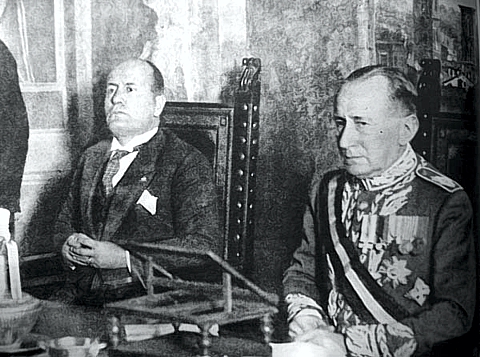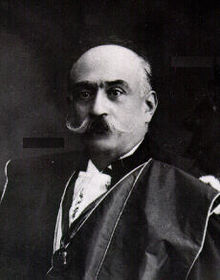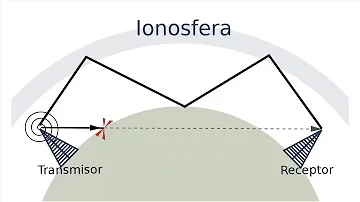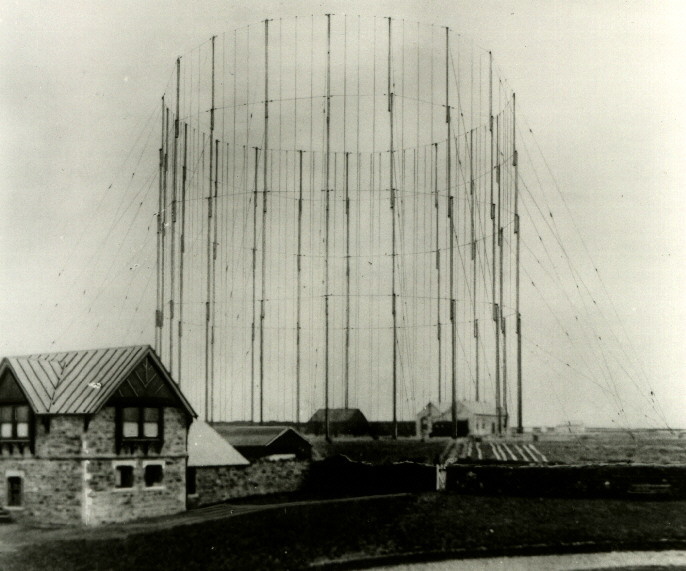Marconi
William
Marconi
Marconi
William
Marconi
For us Italians, the 1909 Nobel laureate in physics is in fact the inventor of radio. To the rest of the world, no ... the inventor of radio transmissions is , according to the U.S. Supreme Court and the British high court, Nikola Tesla and therefore after 1940 , the year of the rulings, patent benefits were awarded to Tesla.

But is Guglielmo Marconi therefore a fraud? Well no ... certainly Marconi worked hard in the search for a way to transmit radio signals and given the time that has passed it matters little whether or not he had learned about Tesla's technologies, in fact he made an important contribution, regardless of whether the discovery is his or not; at least that is my point of view.
Marconi was a man who could enjoy family fortunes and was able to invest much money in his experiments. His mother, in particular, was a major contributor to many of her son's experiments.
Among the words that come to mind to define Marconi is missing that of 'inventor' ... this is because, in fact, he was an excellent technician, a lousy scholar, and beyond telegraphic innovations we cannot attribute much to him!

It was probably the propaganda of Mussolini, who welcomed him with open arms into his party, that imprinted his name in history and tied him permanently to the Italian genius who invented the radio ... but the reality of the facts is somewhat different and if Marconi had not enjoyed extraordinary good fortune (not monetary, I am really referring to the benevolence of fate) he would probably be a completely unknown name ... ... and yet he won the Nobel Prize.
Between the lines ... ... let's remember that Nobel is the inventor of dynamite ... let's also remember the names of those who won this famous prize (for peace, etc. etc.) and then draw our own conclusions. Many definitely deserved it ... others ... many others I would say definitely not.

However ... Marconi!
He introduced himself to one of his professors, Augusto Righi, a great Italian physicist who did not win the Nobel Prize, but in return they dedicated an asteroid named after him; the good Marconi explained to his professor that he would use the studies and knowledge he had studied in his physics courses to transmit a radio wave over the horizon ... even across the Atlantic. Righi advised him to start his studies all over again as he did not understand the basics ... and reminded him that the earth was not flat! Why?
The answer to why Righi was so rude to Marconi is trivial and absolutely true even today: electromagnetic waves propagate in a straight line and can pass through an obstacle that is smaller than the wavelength. An electromagnetic wave has its own frequency (e.g. 300 Khz) from which we can calculate the length expressed in meters (lambda) ... for example, a 300Khz wave has a wavelength of about 600 meters; this means that if my emission meets a 500-meter hill, there behind it the signal will be receivable, if, on the other hand, the hill is 650 meters my wave will slam into it and behind the hill I will not be able to receive any signal. Marconi explained to Righi that he was wrong ... and that electromagnetic waves propagated but parallel to the ground ... and therefore followed the earth's curvature. Righi, chased Marconi away, reminding him once again that the earth was not flat.

Here: why do we use satellites today?
Simple, very simple ... because Righi was absolutely right and it is impossible to transmit (without repeaters as intermediaries) a wave , or if you prefer let's use the term 'radio transmission', beyond the horizon lines and, contrary to Marconi's claim, these do not follow the earth's curvature and need triangulation from space to reach a distant point.

Subsidized by his mother, Marconi prepared an experiment of transmitting a radio signal overseas with the purpose of demonstrating his theory to the academic world. The experiment was public and attended by journalists and famous people at the time. Today we know that experiment was successful and Marconi was crowned a legend. In the meantime, the scientific world sank into deepest bewilderment because of the two cornerstones of science at the time, one was necessarily wrong: either electromagnetic waves do not propagate in a straight line or the world is flat. We know today, however, that the world is not flat and electromagnetic waves propagate in a straight line--so what? how was it possible for Marconi to transmit the signal?
And this is where fate comes in ... luck! Marconi had already been fortunate in being born into a wealthy family that gave him the economic opportunity to pursue his fallacious theories but, to top it all off, the weather also got in the way! Shortly before the experiment one of the two antennas had enormous problems in that , because of its height, the antenna on the American side was knocked down by a thunderstorm. It took several hours to restore and the experiment was delayed into evening hours. Today we know that during the evening and night hours the ionosphere acquires properties that allow it not to be traversed by the electromagnetic wave (and thus dissipate into deep space) but rather to reflect it back to the planet. The wave emitted by Marconi then bounced between earth and ionosphere like a ball in a pinball machine and reached the second antenna. So, Marconi's theory was wrong but it worked by chance ... the same unpredictable chance that science , whose humility is zero, does not allow in its theories. The right thing to say at the time would have been : ' In theory it should not work ... '!
Think what would have happened if the experiment had been held in broad daylight!
And so here it is that Albert Einsten was probably absolutely right in saying :
"Theory is when you know everything and nothing works. Practice is when everything works and nobody knows why. We put theory and practice together: nothing works--and no one knows why!"
Reading this statement in the specific case Marconi's practice worked but no one knew why ... and we got there many years later!!! For the record, Prof. Righi finished his work precisely by studying the ionosphere.

I realize how irreverent what I have written so far is, but I would like to express sincerely and subjectively my opinion about Marconi because I do not want to be misunderstood : I have great respect and admiration for the man who, with stubbornness and tenacity, did not desist from his convictions and dared to challenge, and won, official science. The fact that Marconi himself was proposing a wrong idea, if we reflect on it for a moment, does not matter much if we think that after him there was radio and we understood what the ionosphere is. If he had not tried, do you think anyone else would have invested money and time on something that ''could not work''? From this point of view Marconi is more of a hero than an inventor ... Marconi is the practical demonstration that one who studies and applies every single known aspect of a certain phenomenon will probably never discover anything about that particular phenomenon but, by chance, will help someone else discover something about a phenomenon he knows nothing about. How many discoveries are made by chance? So many!!! We could summarize by saying that every theory and experiment is based on evidence that approximates reality by simplicity of analysis; the best scientists are those who manage to isolate a phenomenon by excluding everything that is irrelevant or at least appears to be irrelevant ... summarizing further, at the cost of becoming quasi-Simodian : theory is an approximation of reality! And Guglielmo Marconi proved it !!!
There are few scientists and scholars who can keep an open mind and consider what 'is not possible' ... ... okay, let's not generalize ... there are aspects that we can take for certain at 99.99999% ... but others only at 95% ( for example) ... and might not that 5% of randomness, luck, ignorance (call it what you will) conceal an incredibly useful discovery? Should we perhaps avoid saying that certain things are 'impossible'? Can we try to say that certain things are highly improbable , that 'in theory' it doesn't work but 'in practice ...' instead of judging and putting up impassable walls?
Is it possible to travel through time? ... is unlikely!
Do aliens exist on the Moon? ... in theory no!
Is it possible to deflect the Earth's gravitational field? ...I don't know!
There, with answers like that, all in all let's leave that 5% chance to the Marconi who will come!!!